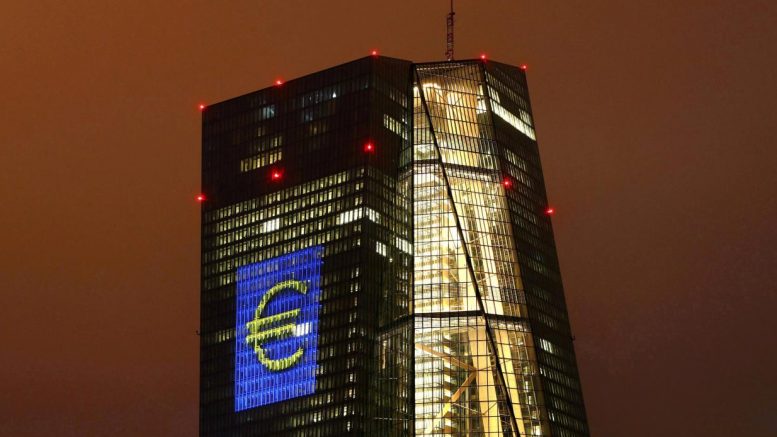Amid a deterioration in the dataflow and growing uncertainty regarding the Euro area’s global environment triggered by the US protectionist push, BoAML thought that the ECB would want to wait until the 26 July meeting before announcing the end of the QE purchases in December 2018. But Peter Praet’s speech last week cannot be ignored. According to the firm’s analysts, stating explicitly that the Council will “assess next week” how much progress has been made on delivering the central bank’s objective to know whether a “gradual unwinding” of the net purchases “is warranted signals the ECB’s willingness to “look through” the current soft patch.”
Emphasis on progress on inflation
BoAML would in particular highlight the fact that Praet gave a generally positive assessment of the 3 criteria he had laid out to assess “progress” (convergence, confidence, resilience). This is very significant coming from a board member who has always sat decisively on the dovish end of the spectrum and whose views have never been found at odds with those of Draghi. But this should not come as a surprise, the ECB has to be consistent if QE is ending this year and, hence, it has to send a reaffirming message on those three criteria.
We do not think the inflation outlook will warrant that withdrawal but we always thought that the ECB would be able to find enough reasons, the bar is actually low: the new set of forecasts next week will likely allow to still show convergence to the target in 2020. The recent evolution of wages and alternative measures of core inflation provides more confidence. Also, resilience is a very subjective criterion. But the timing certainly surprised us.
QE is sensitive to politics, but differently
The experts also think there is a key political message here as the QE was always based on an implicit contract with national governments, which were supposed to deliver fiscal prudence and structural reforms in exchange for monetary support.
This is no longer obvious, given the stance of the new Italian government. There was always a risk that QE would allow “free riding” behaviour. This is materialising now. Closing the QE chapter a week after populists come to power in Rome signals the ECB’s unwillingness to allow its monetary policy to be taken “taken hostage”.
Also, Italy is “on its own” and the ECB does not seem inclined to help control the spread widening.
Announcement on QE ending current week, details later
So BoAML’s analysts expect them to announce a short taper to December current week. This doesn’t mean we’ll have everything we need from the ECB on their monetary stance. The end of QE was in any case well expected. There is some information content in the choice of the moment for communicating it, but the real issue is on how forward guidance on policy rates will evolve. On this, they think we’ll have to wait a bit longer, probably July, with possibly some snippets at Sintra.





